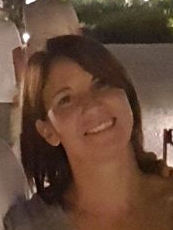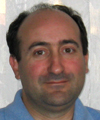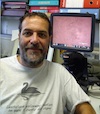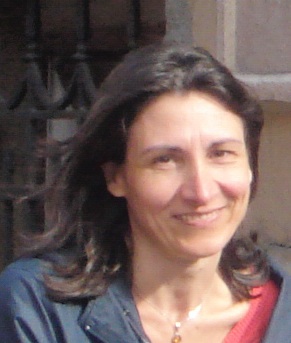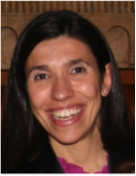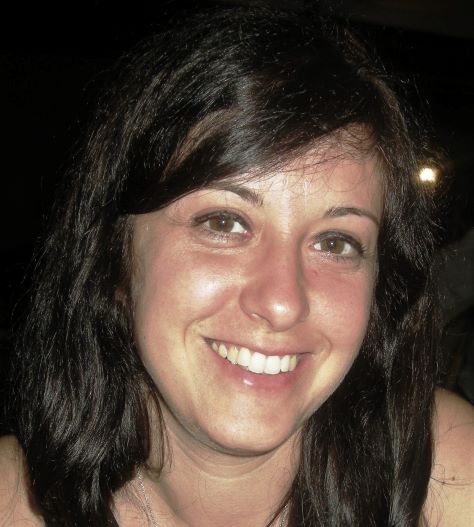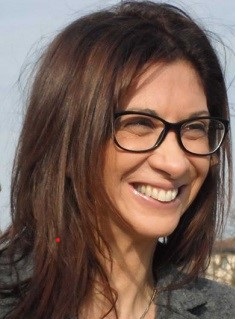Studying at the University of Verona
Here you can find information on the organisational aspects of the Programme, lecture timetables, learning activities and useful contact details for your time at the University, from enrolment to graduation.
Academic calendar
The academic calendar shows the deadlines and scheduled events that are relevant to students, teaching and technical-administrative staff of the University. Public holidays and University closures are also indicated. The academic year normally begins on 1 October each year and ends on 30 September of the following year.
Course calendar
The Academic Calendar sets out the degree programme lecture and exam timetables, as well as the relevant university closure dates..
| Period | From | To |
|---|---|---|
| I sem. | Oct 1, 2014 | Jan 30, 2015 |
| II sem. | Mar 2, 2015 | Jun 12, 2015 |
| Session | From | To |
|---|---|---|
| Sessione straordinaria appelli d'esame | Feb 2, 2015 | Feb 27, 2015 |
| Sessione estiva appelli d'esame | Jun 15, 2015 | Jul 31, 2015 |
| Sessione autunnale appelli d'esame | Sep 1, 2015 | Sep 30, 2015 |
| Session | From | To |
|---|---|---|
| Sessione autunnale appello di laurea 2014 | Nov 25, 2014 | Nov 25, 2014 |
| Sessione invernale appello di laurea 2015 | Mar 11, 2015 | Mar 11, 2015 |
| Sessione estiva appello di laurea 2015 | Jul 16, 2015 | Jul 16, 2015 |
| Sessione autunnale appello di laurea 2015 | Nov 24, 2015 | Nov 24, 2015 |
| Sessione invernale appello di laurea 2016 | Mar 9, 2016 | Mar 9, 2016 |
| Period | From | To |
|---|---|---|
| Vacanze di Natale | Dec 22, 2014 | Jan 6, 2015 |
| Vacanze di Pasqua | Apr 2, 2015 | Apr 7, 2015 |
| Ricorrenza del Santo Patrono | May 21, 2015 | May 21, 2015 |
| Vacanze estive | Aug 10, 2015 | Aug 16, 2015 |
Exam calendar
Exam dates and rounds are managed by the relevant Science and Engineering Teaching and Student Services Unit.
To view all the exam sessions available, please use the Exam dashboard on ESSE3.
If you forgot your login details or have problems logging in, please contact the relevant IT HelpDesk, or check the login details recovery web page.
Should you have any doubts or questions, please check the Enrollment FAQs
Academic staff
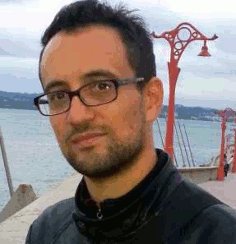
Fatone Francesco
 francesco.fatone@univr.it
francesco.fatone@univr.it
 045 802 7965
045 802 7965
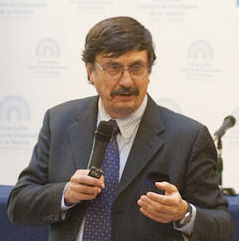
Monaco Ugo Luigi
 hugo.monaco@univr.it
hugo.monaco@univr.it
 045 802 7903; Lab: 045 802 7907 - 045 802 7082
045 802 7903; Lab: 045 802 7907 - 045 802 7082
Spena Angelo
 angelo.spena@univr.it
angelo.spena@univr.it
 045 683 5623
045 683 5623
Ugolini Simone
 simone.ugolini@univr.it
simone.ugolini@univr.it
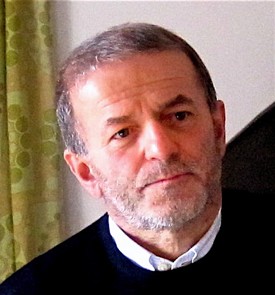
Vallini Giovanni
 giovanni.vallini@univr.it
giovanni.vallini@univr.it
 045 802 7098; studio dottorandi: 045 802 7095
045 802 7098; studio dottorandi: 045 802 7095
Study Plan
The Study Plan includes all modules, teaching and learning activities that each student will need to undertake during their time at the University.
Please select your Study Plan based on your enrollment year.
1° Year
| Modules | Credits | TAF | SSD |
|---|
2° Year activated in the A.Y. 2015/2016
| Modules | Credits | TAF | SSD |
|---|
3° Year activated in the A.Y. 2016/2017
| Modules | Credits | TAF | SSD |
|---|
| Modules | Credits | TAF | SSD |
|---|
| Modules | Credits | TAF | SSD |
|---|
| Modules | Credits | TAF | SSD |
|---|
Legend | Type of training activity (TTA)
TAF (Type of Educational Activity) All courses and activities are classified into different types of educational activities, indicated by a letter.
Soil Microbiology and Plant-microbe interactions (2016/2017)
Teaching code
4S003259
Teacher
Coordinator
Credits
6
Language
Italian
Scientific Disciplinary Sector (SSD)
BIO/19 - MICROBIOLOGY
Period
II sem. dal Mar 1, 2017 al Jun 9, 2017.
Learning outcomes
This course aims at elucidating the influence of the soil environment on settlement and activity of the microbial cenoses (microbiomes) in different pedological contexts. Within the completion of this course, students will have acquired a comprehensive overview of both the major phyla of microorganisms found in soil and the methods (including the new molecular high-throughput sequencing technologies) for their quantitative estimation as well as for the characterization of their physiological properties either in bulk soil or in the rhizosphere. Particular emphasis will be given to plant-microbe interactions, with a special attention to the multiple cross signaling mechanisms among plants and PGPR (Plant Growth Promoting Rhizobacteria) at the rhizosphere level. Symbiotic nitrogen fixation and different mycorrhizal associations will be discussed in deep details. Transformations of organic and inorganic pollutants mediated by soil microorganisms will be treated. Eventually, the understanding of soil microbial ecology principles will allow the students to correctly interpret environment-friendly strategies for improvement of crop productivity, biological control of plant pathogens and biodegradation/bioremediation of contaminated sites.
Program
Part I – The soil medium
Inert component: Solid mineral fraction, Organic matter, Liquid phase, Gaseous phase, Soil structure. Living components: microbiota and macrobiota with particular emphasis to bacteria and fungi. The Rhizosphere concept. Root exudates.
Part II – The soil microbiome
Microbial biodiversity in bulk soil and rhizosphere: copiotrophs and oligotrophs. Methods for quantitative and qualitative (taxonomical) estimation of soil microbial populations. Measurement of biological activity in the soil: Microbial biomass, Metabolic reactions. Effects of physico-chemical and edaphic factors on soil microbial cenoses: Water content and availability, Soil pH, Oxygen concentration in soil atmosphere and redox potential, Concentration of nutrients, Xenobiotic compounds and heavy metals. Significance of soil microbial biodiversity to biogeochemical cycling.
Part III – Soil microbial interactions
Microbe-microbe interactions. Effects of microorganisms on plants. Effects of plants on microorganisms. Plant Growth Promoting Rhizobacteria (PGPR). Symbiotic diazotrophs: Rhizobia and association with legumes. Mycorrhizal associations: Ectomycorrhizae, Endomycorrhizae with particular emphasis to AM fungi, Ectendomycorrhizae.
Part IV – Managing rhizosphere microbiome
Perspectives for the development of novel strategies for sustainable crop production, biological control of plant pathogens and environmental bioremediation through rhizosphere microbiome exploitation.
TEXT BOOKS of REFERENCE
Principles of Plant-Microbe Interactions - Microbes for Sustainable Agriculture
Ben Lugtenberg (Ed.)
Springer (Heidelberg - New York - Dordrecht - London), 2015
ISBN 978-3-319-08574-6
Soil Microbiology and Sustainable Crop Production
Geoffrey R. Dixon • Emma L. Tilston (Eds.)
Springer (Dordrecht - Heidelberg - London - New York), 2010
ISBN 978-90-481-9478-0
Advanced Techniques in Soil Microbiology
Ajit Varma • Ralf Oelmüller (Eds.)
Springer-Verlag (Berlin – Heidelberg – New York), 2007
ISBN-978-3-540-70864-3
| Author | Title | Publishing house | Year | ISBN | Notes |
|---|---|---|---|---|---|
| K. Bouarab, N. Brisson, F. Daayf | Molecular plant-microbe interactions (Edizione 1) | CAB International | 2009 | 9781845935740 | |
| Eldor A. Paul | Soil Microbiology, Ecology and Biochemistry - 4th Edition (Edizione 4) | Elsevier | 2014 | 9780124159556 |
Examination Methods
Oral presentation consisting in an in-depth discussion on a particular topic among the themes treated during the Course + Final written examination.
Type D and Type F activities
Modules not yet included
Career prospects
Module/Programme news
News for students
There you will find information, resources and services useful during your time at the University (Student’s exam record, your study plan on ESSE3, Distance Learning courses, university email account, office forms, administrative procedures, etc.). You can log into MyUnivr with your GIA login details: only in this way will you be able to receive notification of all the notices from your teachers and your secretariat via email and soon also via the Univr app.
Graduation
List of theses and work experience proposals
| theses proposals | Research area |
|---|---|
| Studio delle proprietà di luminescenza di lantanidi in matrici proteiche | Synthetic Chemistry and Materials: Materials synthesis, structure-properties relations, functional and advanced materials, molecular architecture, organic chemistry - Colloid chemistry |
| Multifunctional organic-inorganic hybrid nanomaterials for applications in Biotechnology and Green Chemistry | Synthetic Chemistry and Materials: Materials synthesis, structure-properties relations, functional and advanced materials, molecular architecture, organic chemistry - New materials: oxides, alloys, composite, organic-inorganic hybrid, nanoparticles |
| Dinamiche della metilazione del DNA e loro contributo durante il processo di maturazione della bacca di vite. | Various topics |
| Risposte trascrittomiche a sollecitazioni ambientali in vite | Various topics |
| Studio delle basi genomico-funzionali del processo di embriogenesi somatica in vite | Various topics |
Attendance
As stated in the Teaching Regulations for the A.Y. 2022/2023, attendance is not mandatory. However, professors may require students to attend lectures for a minimum of hours in order to be able to take the module exam, in which case the methods that will be used to check attendance will be explained at the beginning of the module.



